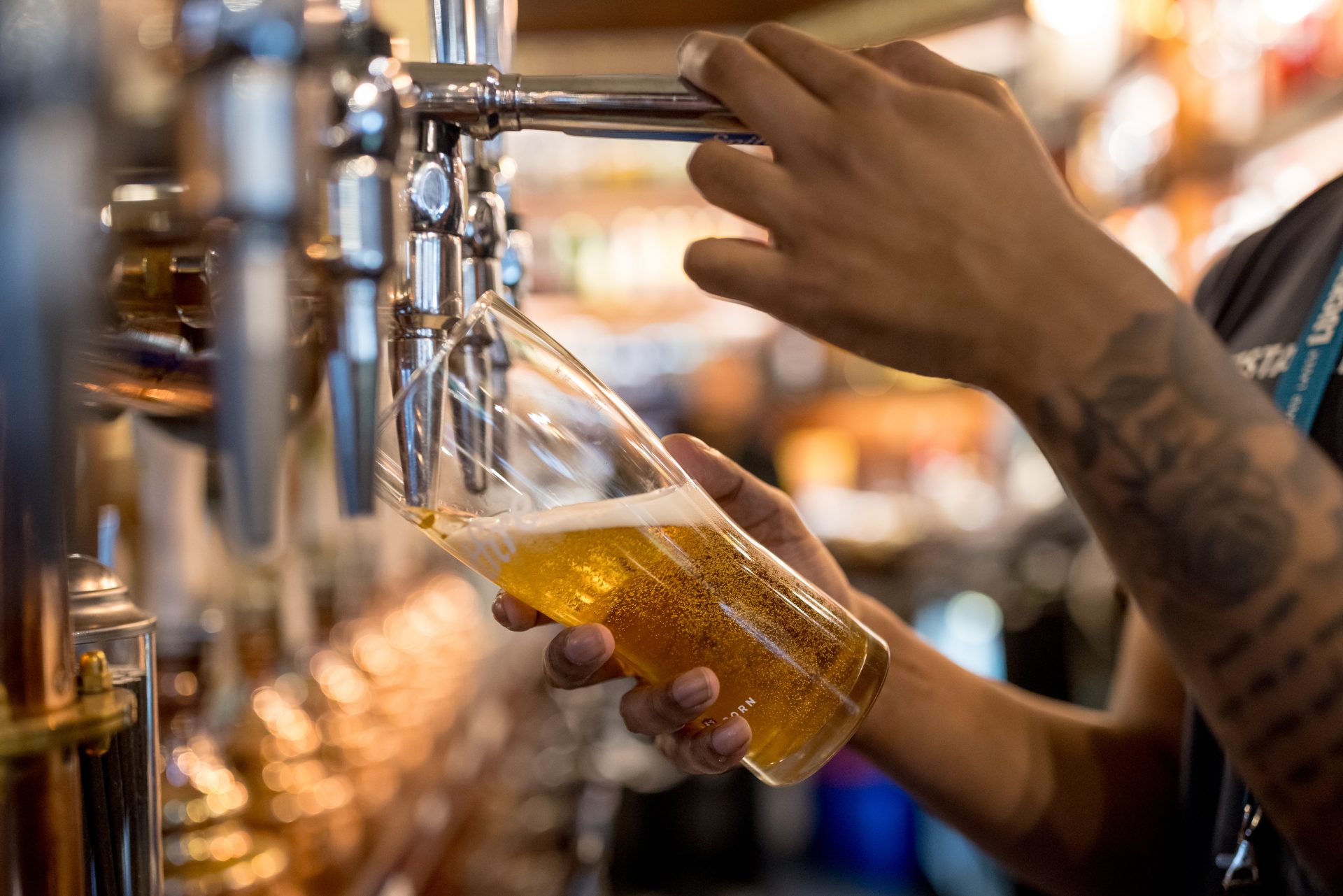There’s an American interloper coming to a pub near you: tipping. One pub, the Well & Boot in Waterloo Station, now adds a 4% service charge. Though technically optional, it’s charged for all orders at the bar unless you ask for it to be removed. Who is going to do that and risk looking cheap? Naturally, they don’t take cash — so most customers will just swipe without noticing it.
This adds an extra 30p on top of an already pricey £7.45 Guinness, making a swift couple of pints before you catch your train prohibitively expensive. In the last two years, the price of a pint has increased by 15.8%. It’s now over £5 nationally and £6.50 in London. The pub trade has been hit hard by soaring energy and staff costs, most recently with the rise in National Insurance contributions. These all have to be passed on to the customer, who doesn’t have much cash to spare anyway, creating a vicious circle. No wonder almost 2500 pubs have closed in the past five years.
So adding a service charge is a sly way of putting up the price without the customer noticing, with the added bonus that VAT and National Insurance are not liable on the tip. The 2023 Employment (Allocation of Tips) Act did make it illegal for employers to siphon a portion of tip money to cover their own costs. But even if all the money is going to bartenders, you get the sense that these tips are covering for employers too skint to pay their staff a liveable wage. That has long been the practice in the States, but it’s new for us here.
It’s not just in the pub sector that American-style tipping is spreading. At the trendy bakery in the Kent town where I live — the one that doesn’t take cash for sales, but has no aversion to coins and notes left in a tip jar on the counter — the card machine asks if you want to add a tip. A tip! I’m buying a loaf of bread, not staying for lunch.
What’s crucial is that tipping makes sense in America because it also works for the customer, especially regular visitors. In a bar you add a dollar or so to the price of your beer and in return you receive crisps and nuts and a barman to whom you can talk as much as you want. But that “I’m listening” bartender you remember from Cheers does not exist in England. You start talking about your marital difficulties with a British landlord and you’ll probably be asked to leave.
And if you spend long enough at an American bar, the barman might buy you a pint or give you a shot of whisky on the house. Tipping there is an investment in hospitality. There’s a proper quid pro quo about it. In England, it’s just another way of chiselling the customer.
I’m not entirely averse to tipping in pubs for table service. The British system of standing at a bar is a relatively recent invention, coming with the arrival of gin palaces in the early 19th century. These establishments were geared up to maximise efficient drinking. Before that, most inns and taverns would have had drinks brought to the tables, so people who spent the most would get more attention. That’s the thing about tipping: you have to receive something for your money or it’s just a racket.
Tipping isn’t the only American import that is ruining pubs. Since the pandemic, people seem to have lost any sense of bar etiquette: it’s common, especially in London, to see people queuing in pubs. As stand-up pub landlord Al Murray puts it: “Standing in a line, looking at your phone, waiting your turn — this is not pub behaviour.”
So next time you go to the pub, ignore the line and walk confidently up to the bar, order your pint and pay attention to the little device as it’s thrust in your direction. If there’s a tip, remove it and strike a blow for England. Then drink your pint quickly and boycott the establishment. This cannot be allowed to spread.











Join the discussion
Join like minded readers that support our journalism by becoming a paid subscriber
To join the discussion in the comments, become a paid subscriber.
Join like minded readers that support our journalism, read unlimited articles and enjoy other subscriber-only benefits.
Subscribe